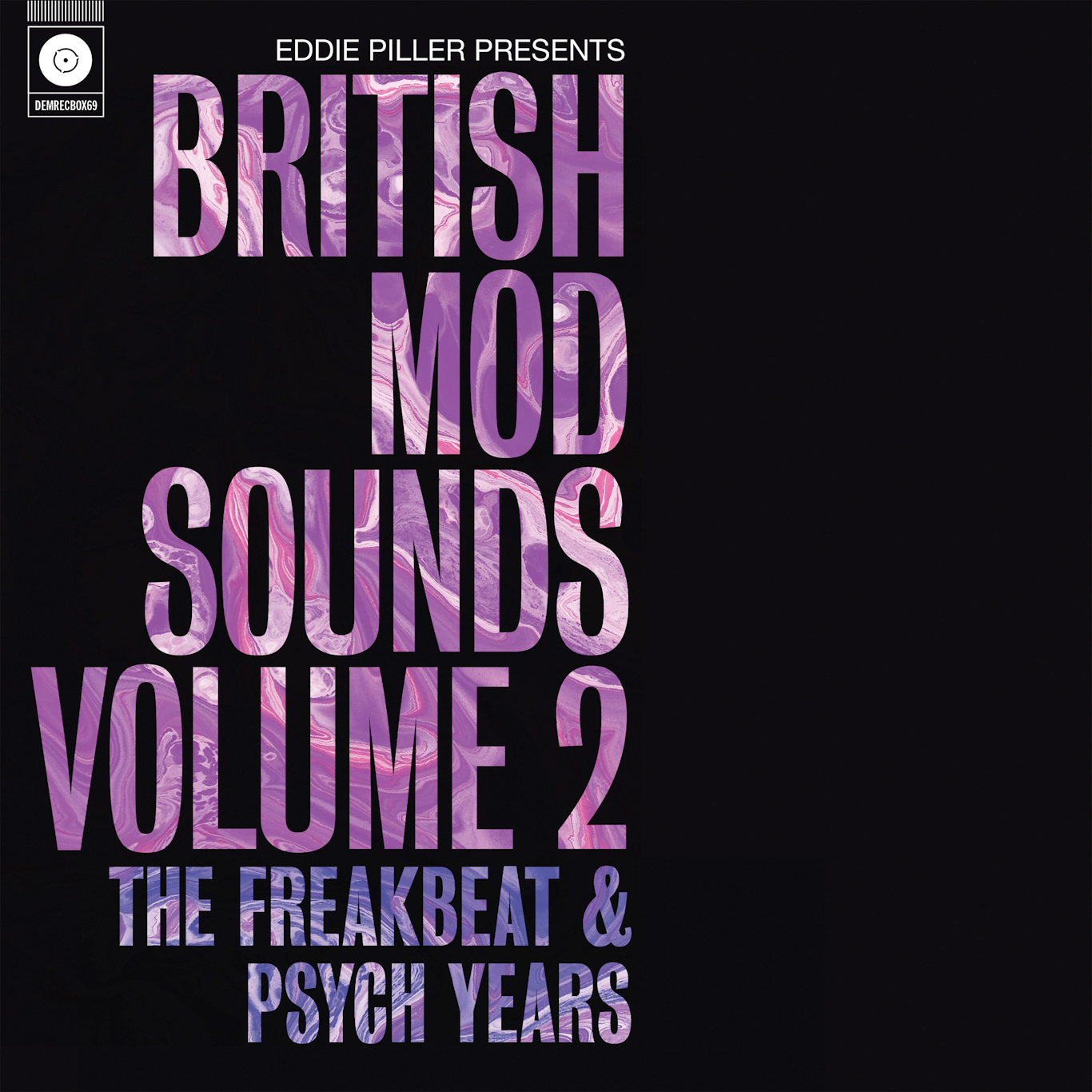
When Eddie Piller initially compiled 100 tracks to capture the best of British Mod sounds, no follow-up was intended. According to Piller, the initial collection was “PERFECT” which couldn’t be improved upon. The collection covered British Mod Groups during an era up until 1965 when these bands for the most part were reinterpreting American R&B.
This compilation looks at what these bands did next when the majority of them became influenced by the progressive, acid-inspired west coast hippy culture. Piller places 99 tracks across four discs into three categories: Freakbeat, epitomised by The Sorrows, eastern-influenced psychedelia as witnessed with the Beatles Revolver LP and folk-based progression showcased by The Kinks. Furthermore jazz-rock, proto-prog, whimsy, heavy rock, psychedelic soul and cockney music-hall influences also appear.
There are several familiar household names irrespective of whether one is a Mod fan or not including David Bowie, Small Faces, Fleetwood Mac, Scott Walker, The Kinks and The Who. This compilation is not about these artists, but rather if their songs fall under the post-Mod spectrum as defined by Piller. Some are better than others but each of their tracks is deserving of being post-Mod. This is positive since it allows the listener to stay focused on the genre, and the emerging mid-sixties influences on Mod music rather than the commercial success of specific artists who were at some point in their career associated with this genre.
Whilst the opening track is more closely related to this compilation’s predecessor, the lyrical imagery associated with psychedelia which embraces new recording techniques is found on tracks such as Tomorrow’s “My White Bicycle”. Flower power is infectious on the subsequent track “Midsummer Night’s Scene” by John’s Children. Nirvana (not the nineties grunge band) adds harmonica and old-English-sounding flutes to a funky rock and R&B backdrop.
The trip is truly in motion with songs such as The End’s “Shades of Orange” which also adds the sounds of a British marching band. “Tales of Flossie Fillett” musically isn’t the most psychedelic but Gus Peters’ vocals with the song’s lyrics make it so. The subsequent “10,000 Words in a Cardboard Box” fully digs the ride with haunting strings making it a suitable precursor to Status Quo’s “Pictures of Matchstick Men”.
The majority of the songs featured are accompanied by lyrics and seldom extend beyond four minutes long. The only exception to this is the penultimate, Nucleus’ “Song for the Bearded Lady” which features the best of sixties guitar innovations practised by Jimi Hendrix and Cream and synchronises perfectly with jazz-arranged trumpets. The subsequent, and sadly, final song of this compilation concludes with the energetic jazz ecstasy of Graham Dee’s “Car Chase”. It’s truly psychedelic and surreal, not one single car sound or road screech can be detected.
This compilation showcases a well-chosen compilation of musical outputs which for some artists were the results of LSD, pot and acid. New studio effects were also influential. Furthermore, space, and dedicated live music venues to allow these musical evolutions to thrive were sacrosanct. In December 1966 the UFO club launched in central London before moving a year later to the larger Roundhouse in Camden.
British Mod Sounds Volume 2: The Freakbeat & Psych Years is best enjoyed where the listener can be detached and go down their rabbit hole. It will be worth the trip.



Be the first to comment